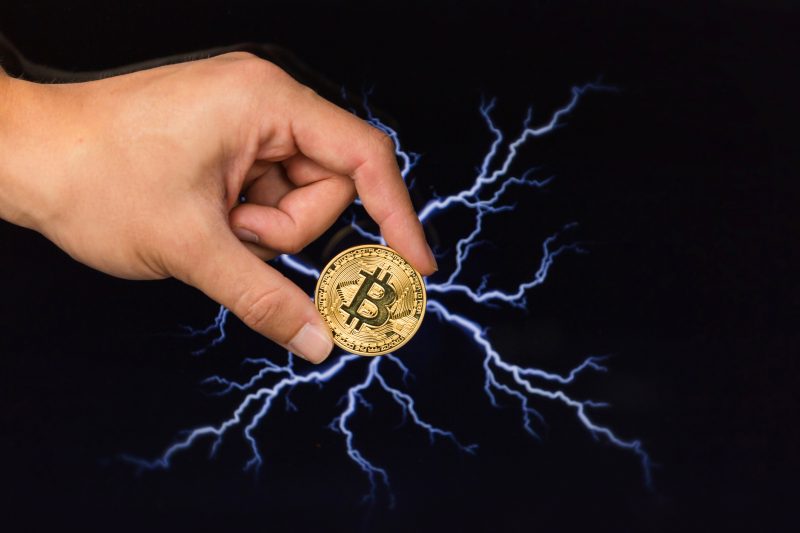The Bitcoin price is known to be extremely volatile over the short term, but the past couple of months have been a particularly wild ride for the crypto asset
After hitting a 2020 high of over $10,000 in the middle of February, the Bitcoin price was lower than $5,000 a month later. Since then, the price of the world’s most popular cryptocurrency has recovered somewhat to around $7,300.
These extreme fluctuations in the price have many speculators wondering what will happen with Bitcoin next, especially in the context of massive, debt-based government expenditures in response to the Coronavirus pandemic. Former Facebook executive Chamath Palihapitiya recently stated that there’s now a five or ten percent chance that Bitcoin will be worth millions of dollars one day.
Earlier this year, Tesla TSLA CEO Elon Musk noted that he’s not convinced the cryptocurrency could become a major database for money around the world. Additionally, billionaire investor and Bridgewater Associates founder Ray Dalio believes investors will turn to gold rather than Bitcoin during a potential crisis in the world’s major fiat currencies.
This excitement around the price of Bitcoin may only increase over the next 34 days, as the third halving event in it’s history approaches. For those who don’t know, a halving in Bitcoin is when the number of new Bitcoin created roughly every ten minutes is cut in half. This change in the Bitcoin issuance rate is scheduled to take place every 210,000 blocks (around four years).

Recently, Blockware Solutions CEO Matt D’Souza discussed the implications of the upcoming halving on an episode of The Stephan Livera Podcast. Blockware Solutions recently put out a full report on how the Bitcoin price is greatly affected by the level of efficiency achieved by miners on the network. The report also covers this mining-related phenomenon in the context of the halving.
“It’s kind of like this perfect storm for Bitcoin,” D’Souza told Livera during their chat.
Miner Capitulation is Good For the Bitcoin Price
While the halving of Bitcoin’s issuance rate has obvious effects on the supply-side economics of the Bitcoin market, Blockware Solutions makes the case that the implications of the halving for the price go far beyond changes in supply.
As outlined in their recent report, the halving also has the side effect of putting newly-created Bitcoin into stronger hands due to the fact that inefficient miners with small margins will be pushed off the network once the block reward subsidy is cut in half.
“Capitulation is a very good thing,” explained D’Souza.
“It’s removing the inefficient miners. They no longer get their rewards. Their rewards get allocated to the efficient miners — the guys that have deployed correctly that have low [cost] electricity. And those are the strong hands. We want it in their hands because they don’t have to sell as much Bitcoin. Their margins are good, they don’t have to sell as much Bitcoin, there’s less sell pressure on the network, and the Bitcoin price could increase.”
According to D’Souza, inefficient miners tend to add more sell pressure to the market due to the fact that a higher percentage of their total mining rewards must be sold to pay for things like electricity bills.
“It’s going to be extremely healthy,” D’Souza, who is also the CEO of Blockware Mining, later added in reference to the upcoming halving event. “We encourage the halving. We don’t fear it. We welcome it.”
That said, D’Souza also explained that there could be some short-term pain in the Bitcoin price before the inefficient miners remove themselves from the network. This is because some miners will be incentivized to operate at a loss for a period of time due to the nature of their business contracts.
“There’s all types of deals out there that are going to make some miners operate at a loss, which creates more sell pressure because all of the Bitcoin they’re mining is going to get sold,” said D’Souza.
“And then they’re going to have to tap into their treasury. And that has to get sold too, so that’s more sell pressure. So, we need all that to blow out.”
In D’Souza’s view, it could take two to three months for inefficient miners to get blown off the network if the Bitcoin price stays around the current price level.
Additional Effects of the Halving on the Bitcoin Price
In addition to the benefits of miner capitulation, D’Souza discussed other ways in which next month’s halving could affect the Bitcoin price. For one, the Blockware Solutions CEO expects the event to affect the demand side of the Bitcoin market as well.
“Everyone knows the halving is typically bullish,” said D’Souza. “People understand that the supply-side economics will improve, so that’s going to improve sentiment into the system on the demand side.”
D’Souza also pointed out that miners are beginning to collateralize their Bitcoin, which should reduce sell pressure on the network. When miners can borrow fiat against their Bitcoin holdings, they are no longer selling it in order to pay their bills.
“It’s another lever of, basically, improving the supply side,” said D’Souza.
Source: Forbes
DINAMO Networks e GoLedger selam parceria e laçam solução em Blockchain com HSM, LGPDGo – Ouça
141 Cybersecurity Predictions For 2020
The Complete Guide to Domain Names: What Are They and How Do They Work
Online Identity Is Important: Let’s Upgrade Extended Validation. By Patrick Nohe

































